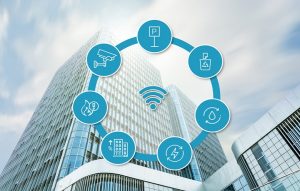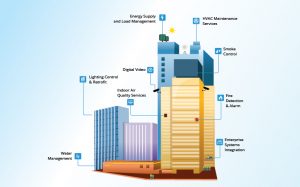Monitoring and managing a multifaceted facility is a time-intensive job for the facility managers. Keeping this in consideration, the inception and implementation of the smart building is a favorable development. A smart building delivers a higher level of comfort and increases the conveniences of management. It possesses a great potential that increases the productivity for both occupants and the people managing the facility. It makes the job easier by monitoring the performance and detecting the anomalies that would be difficult to detect with the previous practices of management.
“Smart building technologies will result in positive change for the facility manager. Smart buildings will enable increased action, control and automation and associated data capture for furthering the evidence based decision support. The facility manager will therefore be able to shift from reactive and routine based actions to more operationally efficient predictive and time appropriate actions.”- Richard Chant, head of smart buildings operations, ENGIE
In this white paper you will learn about:
- Challenges faced by facility managers
- The role of artificial intelligence in facility management
- How the IoT framework helps in managing a facility more efficiently
- Defining intelligent buildings
- Advantages of residential and commercial buildings
- Benefits and use cases of a smart facility management









